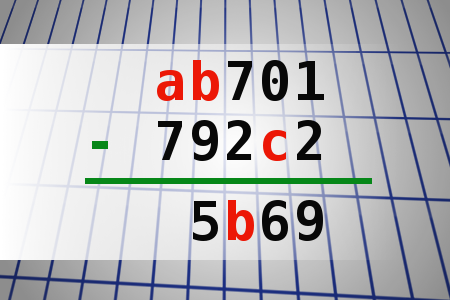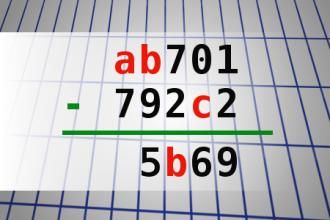Find number abc
If ab701 - 792c2 = 5b69 find number abc. Multiple solutions may exist.
The Chinese Doctor & The Lawyer
A Chinese Doctor can't find a job in a Hospital in the US, so he opens his own clinic and puts a sign outside
'GET TREATMENT FOR $20 - IF NOT CURED GET BACK $100.'
An American lawyer thinks this is a great opportunity to earn $100 and goes to the clinic.
Lawyer: 'I have lost my sense of taste.'
Chinese: 'Nurse, bring medicine from box No. 22 and put 3 drops in patient's mouth.'
Lawyer: 'Ugh. this is kerosene.'
Chinese: 'Congrats, your sense of taste is restored. Give me $20.'
The annoyed lawyer goes back after a few days to recover his money.
Lawyer: 'I have lost my memory. I cannot remember anything.'
Chinese: 'Nurse, bring medicine from box no. 22 and put 3 drops in his mouth.'
Lawyer (annoyed): 'This is kerosene. You gave this to me last time for restoring my taste.'
Chinese: 'Congrats. You got your memory back. Give me $20.'
The fuming lawyer pays him, and then comes back a week later determined to get back $100.
Lawyer: 'My eyesight has become very weak I can't see at all.'
Chinese: 'Well, I don't have any medicine for that, so take this $100.'
Lawyer (staring at the note): 'But this is $20, not $100!!'
Chinese: 'Congrats, your eyesight is restored. Give me $20'

